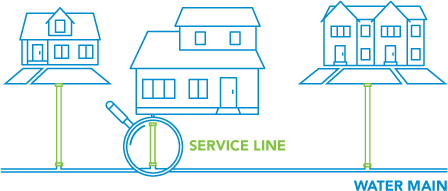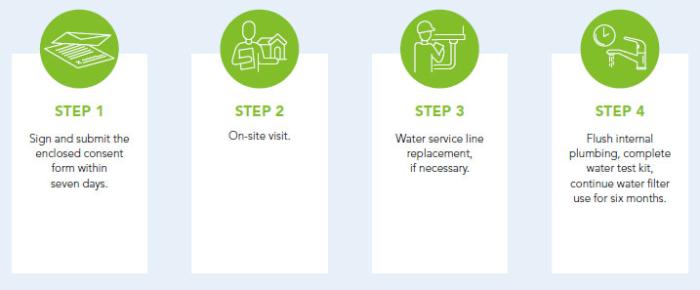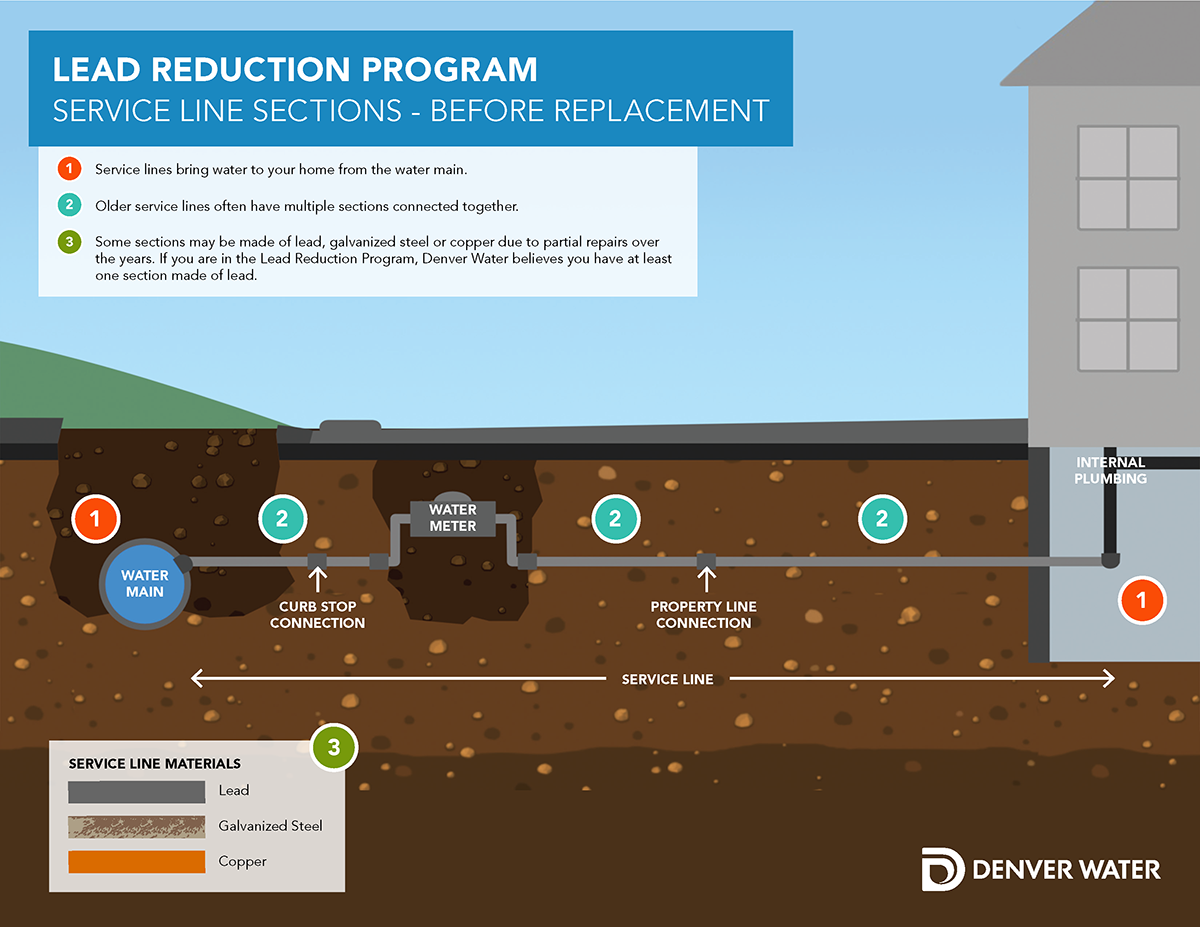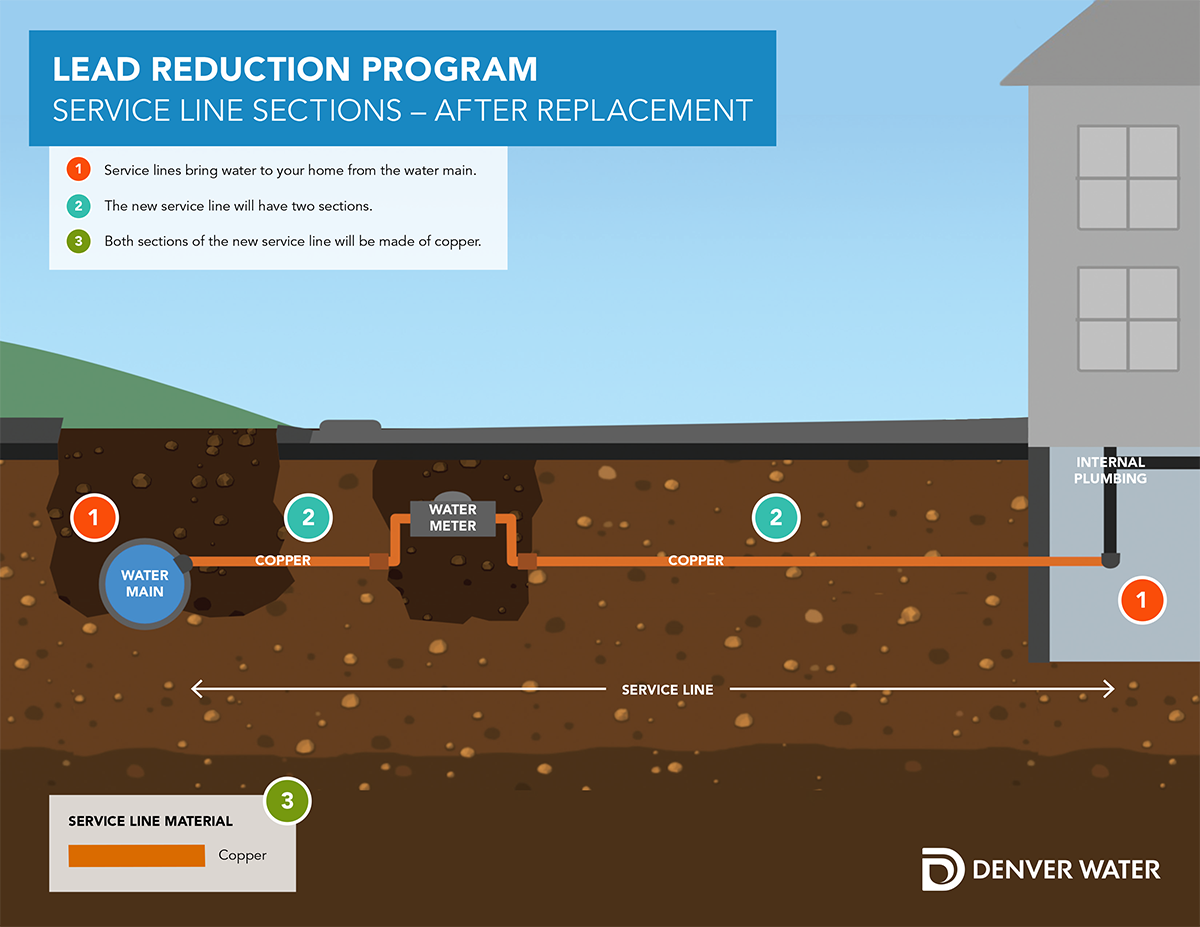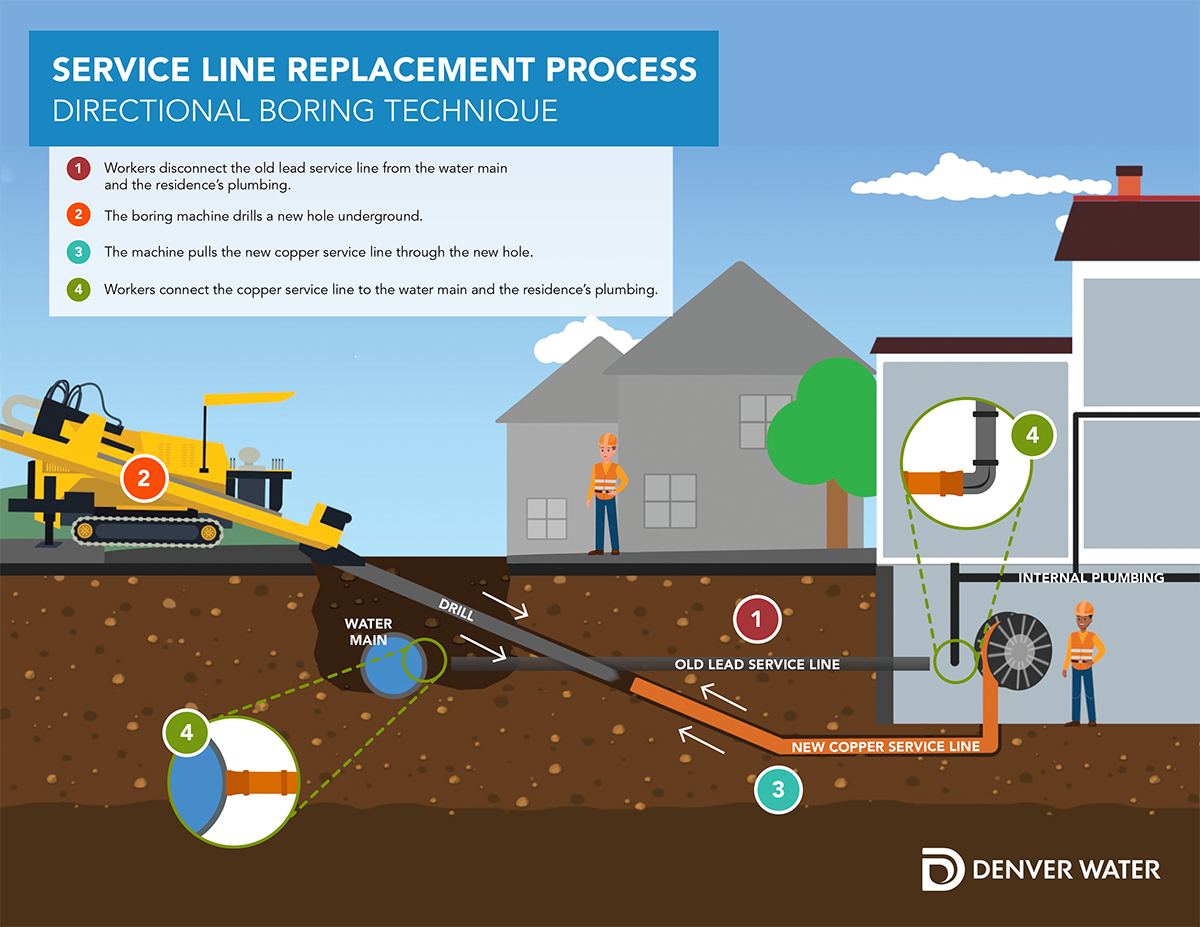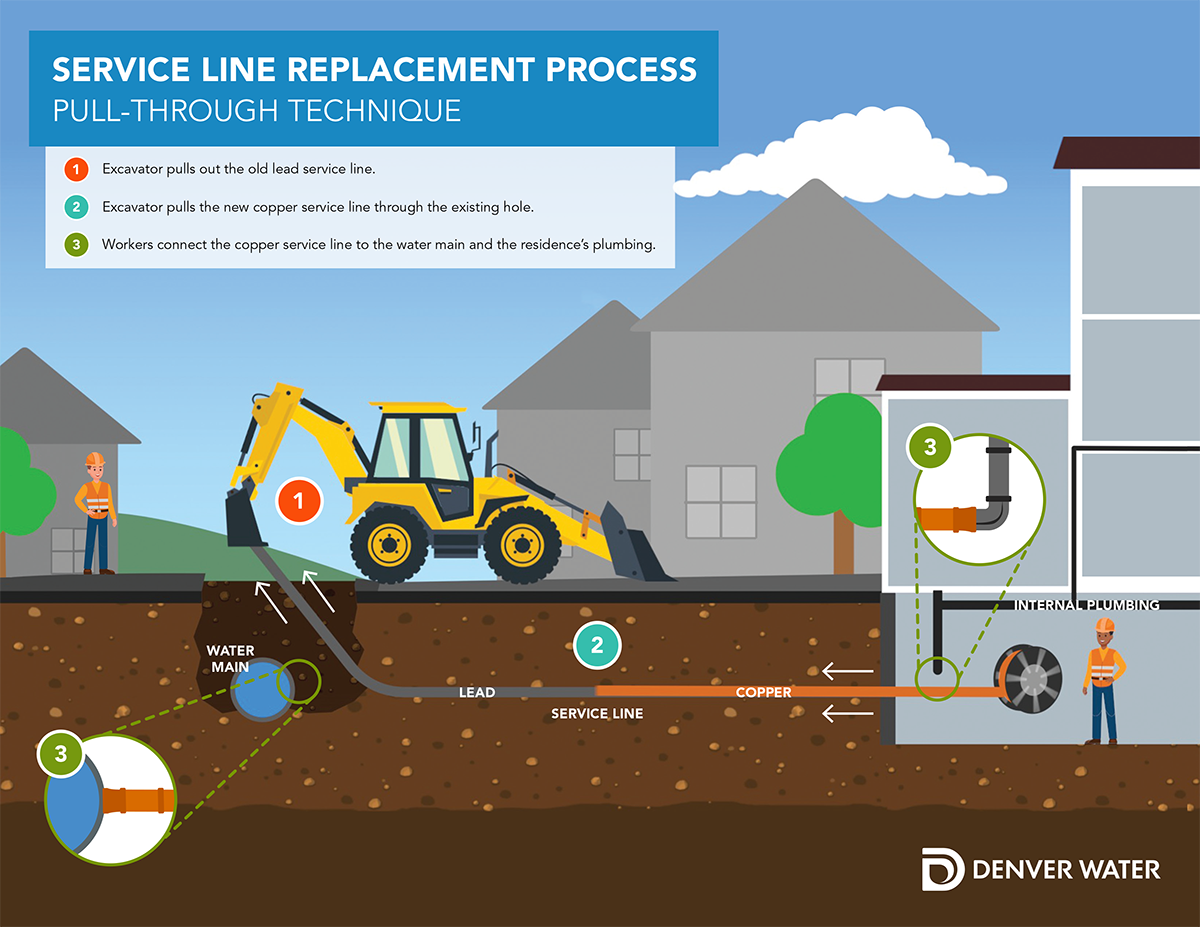What is a water service line?
A water service line is the pipe that brings water from the water main in the street to the plumbing in your property. The customer owns the service line from where it connects to the Denver Water main in the street all the way into the property. While the water Denver Water delivers to customers is lead-free, lead can get into the water as it passes through internal plumbing or a water service line that contains lead.
Water service line replacement timeline
This is the sequence of events for an upcoming water service line replacement. The steps are explained in detail in this booklet.
What you need to know about lead service line construction
- Denver Water plans work areas for service line replacement on an annual basis. The planning process uses a model that takes into account the location of lead service lines and underserved communities, as well as coordination with other planned construction activity.
- Current and upcoming work can be found on our construction map.
- Property owners who want to replace their lead service line on their own might be eligible for partial reimbursement.
- Unless there has been previous confirmation that a service line contains lead, Denver Water will investigate the service line material before replacement.
- When Denver Water identifies your property for upcoming replacement, you will receive a packet in the mail with more information on the replacement process (described below) and a consent form. Because property owners own the service line, Denver Water needs a signed consent form to move forward with work.
What you need to know before lead service line replacement
- Denver Water will investigate the service line material before doing replacement, unless the material is already confirmed lead. These methods include water tests and visual inspections.
- The property owner will need to sign a consent form, allowing our crews to access the property and replace the service line.
- After your consent form is received, an on-site visit will be scheduled with you by the contractor to review the replacement process in detail. Replacement scheduling occurs 1-2 weeks before work begins.
- Move furniture and personal items away from where the service line enters the property. Crews will not move these items due to potential liability issues.
- Outside, before replacement day, dig up/remove any plants or special vegetation you wish to save around the water meter or other excavation areas. Denver Water will not replace plants/special vegetation affected by replacement work.
What you need to know during lead service line replacement
- Crews will need access to the inside and outside of the home throughout the day, from 7 a.m. to 5:30 p.m.
- Someone 18 years or older must be present during the entire replacement process.
- Most service lines can be replaced within four to eight hours.
- Be prepared for the water to be shut off for four to eight hours to allow crews to install and connect the new service line.
- If needed, crews will remove drywall and flooring to access the service line work area unless the property owner has already done so. Denver Water will not restore interior finishes removed for replacement work.
What you need to know after lead service line replacement
- After installation of the new service line, crews will flush the line to remove debris that may have been released during construction. Weather permitting, they will flush from an outside hose bib/spigot.
- Crews will review instructions for flushing internal plumbing and perform an initial flush with the customer on-site. They will also leave behind instructions for the customer to continue the daily flushing process for 30 days following replacement.
- When water is turned back on following replacement, run the irrigation system to test for leaks (if possible), particularly in zones located near work areas.
- Continue using filtered water for cooking, drinking and preparing infant formula for six months after the replacement and flush internal plumbing if water hasn’t been used for a few hours.
- One to three weeks after replacement, crews will replace asphalt and concrete damaged or removed during the replacement. This includes sidewalk, curb and gutter, asphalt roadway and other concrete removed. Restoration work may be delayed to avoid weather/cold temperatures that could affect the quality of work.
Videos

